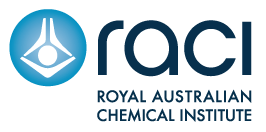Society places a lot of trust in chemistry and chemists in general. We trust chemists and chemistry to provide information about things to keep us safe. Analytical chemistry shows that the active ingredient is present in the drugs we take. It tells us our water is safe to drink. Chemistry can show that a sample is pure and that no harmful component is present. Society has to trust chemists because only chemists can provide this information.
Today, students can access a lot of information through the internet and easily convert that information into an assignment response. This leads to a ‘cut-and-paste’ character to many submissions and a very weak understanding in our science students. Even more concerning is the pay-for-membership websites that can help ‘tutor’ students to deliver assignment-specific answers. This is a concern for the university sector because it essentially delivers an ‘Uber-Uni’ product that disrupts established methods of determining student capabilities. Many academics worry that this level of engagement with information may not indicate a true grasp of the principles involved. Perhaps this is reflected in the disparate scores between invigilated exams and less controllable assignments and other forms of assessment.
This is important for RACI’s accreditation processes. Cash-strapped universities increasingly want to move away from face-to-face learning in laboratories and lecture theatres.
Well-meaning education theorists looking to enhance student evaluations seek to reduce examinations in favour of less confronting means of assessment. As a profession, it is important that an RACI-accredited degree still holds value to employers of future chemists. It is also important that graduate chemists retain the integrity, professional standards and scientific capabilities our society trusts us to have.
The importance of chemistry, and science more broadly, has never been more evident than over the last two years. Not only has chemistry been able to produce vaccines, many companies have stepped forward with antivirals that may have potential as COVID-19 treatments. Merck’s molnupiravir has been released in the UK as the drug Lagevrio, and it is the first COVID-19 treatment that can be taken as a tablet. The latest results on Pfizer’s Paxlovid are also very encouraging. Several smaller drug companies and researchers in Australia are also investigating potential COVID-19 therapeutics.
It is worth reflecting on how significant chemistry and science has been in the fight to conquer a disease that didn’t exist two years ago, in the human population at least. As with the many scientific breakthroughs delivered by chemistry, millions of people stand to benefit from these discoveries, but perhaps the significance may be lost on those who are not trained in our profession or who do not understand chemistry.
The internet tells us that 500 years ago Paracelsus apparently said ‘Alle Dinge sind Gift, und nichts ist ohne Gift, allein die Dosis macht dass ein Ding kein Gift ist’, which I take to mean that everything is a poison and only the dose determines the toxicity. Too much food can cause heart disease. Too much water can kill by lowering sodium levels. Too much sodium is bad for our health.
Back in Paracelsus’s day ‘Theriaca’ was touted as a miracle cure for everything from the plague to syphilis. The ‘active’ ingredient in the totally useless Theriaca was powdered viper. Quack cures have often been associated with snakes. The RACI was born in 1917, the same year that the US Bureau of Chemistry won a landmark court case against Clark Stanley Snake Oil Liniment. This established the term ‘snake oil salesmen’ and chemists have been involved in exposing such fakery ever since.
With drugs, chemists easily understand the idea of a ‘dose’. We understand the concept of ‘dose–response’, as we understand concentrations, solubility, reaction mechanisms, kinetics and concentration curves. But the layperson may not have such an understanding, their ‘knowledge’ being derived from the internet and others’ algorithm-amplified opinions.
With established drug companies delivering such promising results, it is surprising that people have fixated on unjustified ‘treatments’. Perhaps fuelled by mischievous influences on social networks, or platforms seeking views and viewers to maintain revenue streams, non-scientists have embraced all manner of COVID cures, championing drugs that are only proven effective for their accepted purpose, such as de-worming treatments (ivermectin), antimalarials (hydroxychloroquine) and antibiotics (azithromycin). Chemists understand that none of these drugs delivers the wished-for therapeutic effect, at least at doses or conditions that are in any sense relevant.
We live in a golden age where almost all information on any topic is available instantly to us. With information comes disinformation, and misinformation, and it is the role of chemists as a profession to help filter out the more preposterous claims and guide the discourse into a more rational basis. This is where being part of the professional network of the RACI is so important. RACI-supported conferences, seminars and meetings, along with professional development seminars and accredited training opportunities, serve to raise our standard of scientific discourse and knowledge. As we emerge from the pandemic and turn our attention towards the scientific breakthroughs required to achieve global CO2 reductions, chemists not only have a role to contribute to the discoveries, but also have a responsibility to help expose the snake-oil seller’s miracle cures and flawed technologies.
Good luck in the fight!


